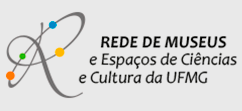
Autoria e Infos
Cibele Souza Bedetti
Contato:
Lattes:
Rosy Mary dos Santos Isaias
Contato: rosy@icb.ufmg.br
Lattes:
Abstract
The cascade of biochemical changes occurring at sites of gall development seems to involve a group of common metabolites in plants, namely, the phenolics. Phenolic accumulation has been commonly related to chemical defence, but their primary role seems to be the regulation of cell hypertrophy in galls. Such regulation implies
phenolics–auxin (IAA) association at some cell re-differentiation sites, and determines final gall shapes. Herein, we investigated phenolic and auxin accumulation in four gall systems, grouped in two morphotypes, namely lenticular and globoid, induced on pinnulas of Piptadenia gonoacantha (Mart.) J.F.Macbr. Changes in the direction and type of cell expansion between non-galled pinnula and galls were also evaluated. Galling insects associated to lenticular and globoid gall morphotypes promoted changes in host plant cells, leading to the development of different cell sizes, different degrees of anisotropy, and different directions of cell expansion. The accumulation of IAA–phenolics compartmentalised on the basis of gall morphotype, i.e. in the cells of superior and lateral inferior cortices in the lenticular gall morphotypes, and throughout the outer cortex in the globoid gall morphotypes. The sites of accumulation of IAA and phenolics coincided with the most hypertrophied regions, influencing on the determination of the final gall shape.
Key-words: Cecidomyiidae galls, developmental anatomy, histochemistry.




